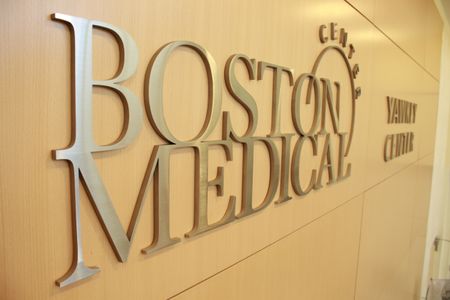Research Efforts
Boston Trauma Institute (BTI) is committed to advancing the care of trauma patients through research – both basic science as well as public health and disparities research.

Prior projects have examined how social determinants of health—education, neighborhood, employment, social support networks, access to health care—impact victims of violence and have utilized this data to develop and implement initiatives that will enhance care delivery for these patients and their families. In addition, the BTI has committed prior efforts towards educating the next generation of trauma surgeons, the public, and policymakers about the role that social determinants and addiction play in violence and traumatic injury. Through advocacy related to addressing the current level of gun violence and other issues at the local and national levels, the BTI is positioned to effect change and contribute to the care of trauma victims on a larger scale.
The following information highlights some of the current projects performed by the Boston Trauma Institute:
-
Violence related injury and epidemiology:
- Lisa Allee, MSW, LICSW, Director of the Community Violence Response Team, spearheads multiple research initiatives focused on the epidemiology and outcomes of victims of violent injury both at BMC and nationally.
- Dane Scantling, DO, MPH, studies the epidemiology and outcomes of firearm violence and aims to devise interventions to minimize its impact on the most vulnerable populations.
-
Injury prevention:
- Lisa Allee, MSW, LICSW, Director of Injury Prevention for the Section of Acute Care Surgery and Trauma has active research projects on older adult falls, motor vehicle crash prevention, impaired driving, child passenger safety, and infant mortality related to sleeping habits.
-
Long-term quality of life after traumatic injury and emergency general surgery:
- Sabrina Sanchez, MD, MPH, is a member of the Functional Outcomes and Recovery after Traumatic Emergencies multi-institutional collaborative and has several projects related to the evaluation and improvement of long-term outcomes for traumatically injured patients
-
Pre-hospital care innovation:
- Noelle Saillant, MD, funded through MIT Lincoln Laboratories and the U.S. Army Combat Casualty Care Research Program is working on using artificial intelligence to enhance trauma triage and pre-hospital care.
- Crisanto Torres, MD, MPH, is instrumental in implementing state-wide protocols that allow EMS personnel to administer whole blood transfusions in the field, a critical advance in trauma response. This initiative enables Dr. Torres to study methods and strategies that facilitate the uptake of evidence-based practice and research into regular use by practitioners and policymakers.
-
Quality improvement in trauma and acute care surgery:
- Research by Aaron Richman, MD, is focused on the evaluation of processes and programs as they related to the safe, effective, and efficient delivery of surgical care to our trauma and acute care surgical patients and how to improve the quality and safety of this care.
- Crisanto Torres, MD, MPH, is studying venous thromboembolism prophylaxis in complex traumatically injured patients, both at the local and national level, and is helping to shape guidelines for the care of these population as they relate to prevention of these events.
-
Patient-centered care:
- Danby Kang, MD, led the implementation of The 3 Wishes Project in the Surgical Intensive Care Unit at Boston Medical Center and is studying its success in this population.
- Sabrina Sanchez, MD, MPH, has a clinical and research interest in shared decision-making and palliative care and its use in acute care surgery, trauma, and critically ill surgical patients, with several projects aiming to improve both in these populations.
- Lisa Allee, MSW, LICSW, spearheads the education of hospital caregivers and staff on a trauma-informed care (TIC) approach and has research interests both in implementation of TIC as well as evaluating its impact on acute care surgery, trauma, and critically ill surgical patients’ overall care and experience.
-
Health disparities in trauma and emergency general surgery:
- Dane Scantling, DO, MPH, through the Carrico ACS Research Grant, is pursuing innovative research in firearm violence and how access to trauma care affects outcomes in this population.
- With the support of an NIH NCI Cure grant, Crisanto Torres, MD, MPH, is examining how socioeconomic factors affect outcomes in cancer-specific emergency surgeries, aiming to identify strategies to improve health equity.
- Megan Janeway, MD, a founding member of Socially Responsible Surgery when she was a medical student at Boston University Chobanian & Avedisian School of Medicine and now a faculty member in the Department of Surgery, has a research interest in common acute care surgical diseases and how access to care, along with other social determinants of health impact outcomes, with a goal of developing and implementing sustainable strategies to improve the care of underserved patients.
-
Whole-blood resuscitation:
- Crisanto Torres, MD, MPH, is currently investigating the effectiveness of whole-blood transfusion in trauma care. His work seeks to refine and expand the use of whole blood in emergency settings to enhance survival rates significantly among severely injured patients.
-
Community engagement:
- Danby Kang, MD, has qualitative research expertise in community engagement and is deploying her skills to engage and liaise with the Boston community in an effort to develop programs that address the most urgent and poignant community needs.